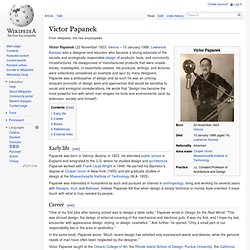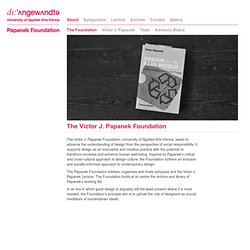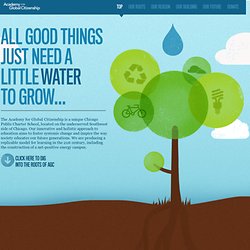

Why “everybody is a designer”: The UX Design Skills Ladder « User Experience Design Training & Consulting–UX Design Edge.
Victor Papanek. Victor Papanek (22 November 1923, Vienna – 10 January 1998, Lawrence, Kansas) was a designer and educator who became a strong advocate of the socially and ecologically responsible design of products, tools, and community infrastructures.

He disapproved of manufactured products that were unsafe, showy, maladapted, or essentially useless. His products, writings, and lectures were collectively considered an example and spur by many designers. Papanek was a philosopher of design and as such he was an untiring, eloquent promoter of design aims and approaches that would be sensitive to social and ecological considerations. He wrote that "design has become the most powerful tool with which man shapes his tools and environments (and, by extension, society and himself). Early life[edit] Papanek was interested in humankind as such and pursued an interest in anthropology, living and working for several years with Navajos, Inuit, and Balinese. Career[edit] Books[edit] Papanek, Victor (1971). The Victor J. Papanek Foundation. The Victor J.

Papanek Foundation, University of Applied Arts Vienna, seeks to advance the understanding of design from the perspective of social responsibility. It supports design as an innovative and creative practice with the potential to transform societies and enhance human well-being. Inspired by Papanek’s critical and cross-cultural approach to design culture, the Foundation furthers an inclusive and socially-informed approach to contemporary design. The Papanek Foundation initiates, organises and hosts symposia and the Victor J. Papanek Lecture. In an era in which good design is arguably still the least present where it is most needed, the Foundation’s principle aim is to uphold the role of designers as crucial mediators of humanitarian ideals.
Elinor Ostrom. Elinor "Lin" Ostrom (born Elinor Claire Awan;[2] August 7, 1933 – June 12, 2012) was an American political economist[3][4][5] whose work was associated with the New Institutional Economics and the resurgence of political economy.[6] In 2009, she shared the Nobel Memorial Prize in Economic Sciences with Oliver E.

Williamson for "her analysis of economic governance, especially the commons".[7] To date, she remains the only woman so honored. Ostrom lived in Bloomington, Indiana and served on the faculty of both Indiana University and Arizona State University. She held the rank of Distinguished Professor at Indiana University and was the Arthur F. Bentley Professor of Political Science and Co-Director of the Workshop in Political Theory and Policy Analysis at Indiana University in Bloomington, as well as Research Professor and the Founding Director of the Center for the Study of Institutional Diversity at Arizona State University in Tempe.
Personal life and education[edit] Jonah Sachs at Compostmodern '11. The Secret Life of Things Sustainability Animation. Human Rights Makerlab DMY Festival Berlin. INFOGRAPHIC. Academy for Global Citizenship. The Academy for Global Citizenship is a unique Chicago Public Charter School, located on the underserved Southwest side of Chicago.

Our innovative and holistic approach to education aims to foster systemic change and inspire the way society educates our future generations. We are producing a replicable model for learning in the 21st century, including the construction of a net-positive energy campus. An AGC education extends beyond a solid academic foundation. Organic, nutritionally balanced meals provide mentally and physically strong building blocks, daily yoga centers the body and mind, gardening teaches about life and food, wellness instruction creates healthy habits, and ecologically sustainable-practices throughout the school encourage learners to develop sustainable lifestyles. Our mission is to empower students to positively impact the community and world beyond. Serving the whole child Modeling academic excellence Developing inquiries Cultivating international awareness a.
B. C. How Much Do We Really Recycle?